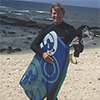 Holiday Break begins on December 23rd. We will return on January 2nd, 2025. Thank you and Happy Holidays
Holiday Break begins on December 23rd. We will return on January 2nd, 2025. Thank you and Happy Holidays Holiday Break begins on December 23rd. We will return on January 2nd, 2025. Thank you and Happy Holidays
Holiday Break begins on December 23rd. We will return on January 2nd, 2025. Thank you and Happy Holidays

Select one of the options below:
Introduction to the geology, physics, chemistry, and biology of the world ocean; oceanic relationships with various human dimensions.
This course meets the All-University Core Curriculum (AUCC) requirements for Biological/Physical Sciences (Category 3A) and is approved under gtPathways in the content area of Natural and Physical Sciences without Lab (GT-SC2).
This course meets the All-University Core Curriculum (AUCC) requirements for Biological/Physical Sciences (Category 3A) and is approved under gtPathways in the content area of Natural and Physical Sciences without Lab (GT-SC2).

ursula.quillmann@colostate.edu
Dr. Ursula Quillmann is an assistant professor in the Department of Forestry and Rangeland Stewardship in the Warner College of Natural Resources. She currently teaches courses on oceanography, coastal environmental ecology, and global environmental systems. Ursula has been teaching NR150-Oceanography at CSU since the Fall 2011. Starting Spring 2018, she is offering NR150-Oceanography as a CSU-online course, in addition to her on-campus oceanography course.
Ursula’s research is in paleoceanography with emphasis on abrupt climate changes. The ocean and climate are a coupled system, and the ocean influences the climate by storing and transporting heat. Once we gained insight from paleoceanographic studies how the Earth’s climate system has worked naturally in the past, we can better assess present and predict future climatic and oceanographic changes due to human activities. Ursula analyzes ocean sediment to find out how past ocean circulation and climate has changed since the last ice age. She specializes in ocean biogeochemistry, stable isotopes and trace and minor elements in biogenic calcium carbonate of foraminifera (microscopic marine protozoa), and past ecological changes.
She taught oceanography and coastal environmental ecology on the spring 2017 Semester at Sea voyage and has taken her students on field programs in Hawaii, Vietnam, South Africa, and Ghana. She loves sharing her passion about the ocean environment with her students.